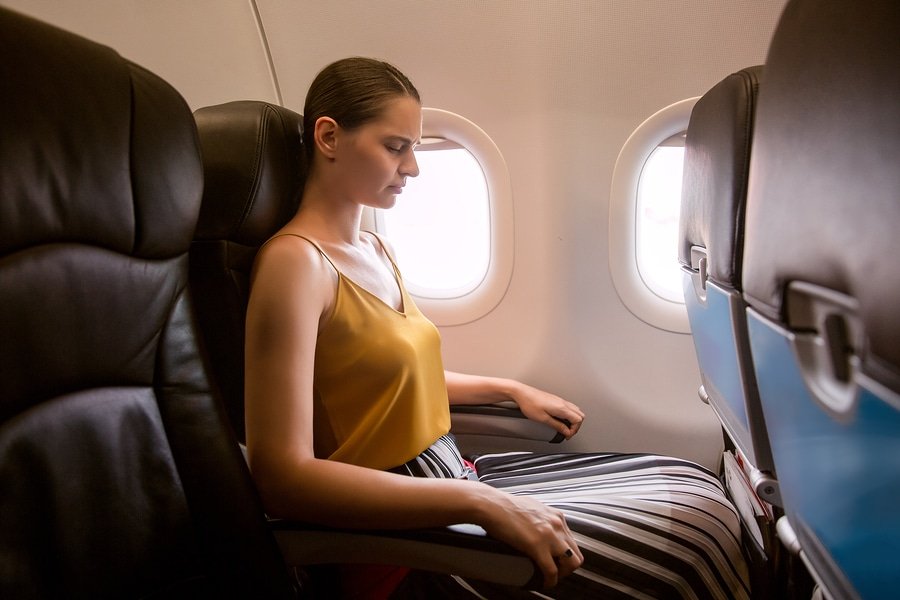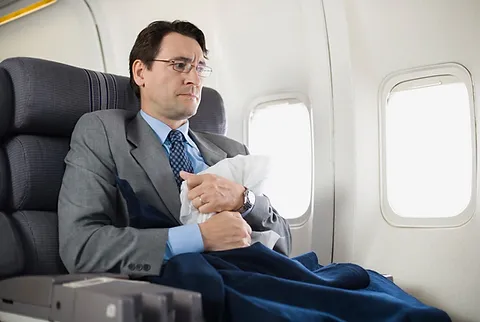The fear of flying, also known as aviophobia, affects a significant number of individuals worldwide. It is characterized by intense anxiety or panic at the thought of air travel.
This fear can prevent people from exploring new destinations, visiting loved ones, or advancing professionally. Overcoming this fear is essential for personal growth and enjoying the numerous benefits of air travel.
In this article, we’ll explore how to overcome fear of flying by understanding its causes, identifying its impact, and providing actionable strategies.
Whether your fear is mild or overwhelming, taking steps to address it can lead to greater confidence and freedom in your life.
Understanding the Fear of Flying

Fear of flying is a specific phobia that manifests through both physical and emotional symptoms. People experiencing aviophobia may feel increased heart rates, sweating, trembling, nausea, or even shortness of breath at the thought of boarding a plane.
These reactions are often triggered by situations like turbulence, enclosed spaces, or the sensation of takeoff and landing.
The emotional aspects of this fear often stem from a perceived lack of control. Flying requires passengers to trust the expertise of pilots and the mechanics of an aircraft, which can be daunting for those prone to anxiety.
Additionally, media coverage of rare aviation accidents amplifies fears, despite the fact that air travel is statistically one of the safest modes of transportation.
Understanding these triggers and their effects is the first step in learning how to overcome fear of flying. Acknowledging the legitimacy of your emotions can help you approach this fear with compassion and determination.
Causes of Fear of Flying
Fear of Heights or Claustrophobia
Many individuals with a fear of flying also experience a fear of heights (acrophobia) or claustrophobia. The confined spaces of an airplane cabin, combined with the sensation of being high above the ground, can lead to feelings of discomfort and panic.
Anxiety About Accidents
The fear of catastrophic events, such as a crash, is a leading cause of aviophobia. Although air travel is extremely safe, irrational thoughts often dominate, making it hard to focus on facts. For many, these fears are heightened by media portrayals of aviation disasters, even though such incidents are incredibly rare.
Lack of Understanding About Aviation Safety
Fear of the unknown is another contributor. Without a clear understanding of how airplanes operate and the rigorous safety protocols in place, it’s easy to assume the worst. Turbulence, for instance, is often perceived as dangerous, even though it’s a normal part of flying.
Past Traumatic Experiences
Previous traumatic events, such as a turbulent flight or a difficult travel experience, can leave lasting psychological scars. Even indirect experiences, like hearing about someone else’s flight-related anxiety, can influence personal fears.
Generalized Anxiety Disorder (GAD)
For some, fear of flying is part of a broader issue with anxiety. Generalized Anxiety Disorder can make individuals overly sensitive to potential risks and dangers, amplifying their fear of flying.
Read More
How to Overcome Fear Of Death
10 Best Language Learning Apps
Strategies to Overcome Fear of Flying

Overcoming the fear of flying requires a combination of education, psychological tools, and practical techniques. By understanding the nature of flight and employing proven strategies, you can significantly reduce anxiety and take steps toward confident air travel.
Educate Yourself About Flying
Knowledge is a powerful tool against fear. Start by learning about aviation safety, which is backed by stringent regulations and protocols. Air travel is one of the safest forms of transportation, with pilots undergoing rigorous training to handle various scenarios.
Understanding the mechanics of turbulence, for instance, can help you see it as a normal part of flying rather than a sign of danger.
Books, videos, and articles from reliable sources can demystify air travel. Many airlines also offer programs designed to help nervous flyers by explaining the sounds, processes, and sensations associated with flying.
By equipping yourself with accurate information, you can replace irrational fears with a logical understanding of how planes operate.
Practice Relaxation Techniques
Anxiety often triggers physical symptoms like rapid breathing and increased heart rate. To counteract this, adopt relaxation techniques such as deep breathing exercises, mindfulness, and progressive muscle relaxation. Breathing deeply from your diaphragm can help calm your nervous system during takeoff or turbulence.
Visualization is another effective method. Picture yourself completing a smooth flight and arriving safely at your destination. Pair this mental imagery with calming affirmations to reassure yourself that flying is safe. These techniques not only reduce stress but also give you a sense of control.
Gradual Exposure to Flying
For those with intense aviophobia, gradual exposure can help desensitize you to your fear. Start by visiting airports or watching planes take off from a safe distance.
As your confidence grows, book short flights to familiarize yourself with the experience. Over time, this step-by-step approach can help you overcome fear of flying.
Cognitive Behavioral Therapy (CBT)
CBT is a highly effective psychological treatment for overcoming specific phobias. A therapist can help you identify irrational thoughts about flying and replace them with realistic perspectives. By working through these thoughts, you can challenge the negative patterns that fuel your anxiety.
Leverage Technology and Support
Modern resources like apps designed for nervous flyers can guide you through calming exercises or provide real-time information about your flight. Sharing your concerns with flight attendants or loved ones can also provide reassurance.
Surrounding yourself with support can make the flying experience less daunting.
These strategies emphasize gradual progress and self-compassion, helping you embrace air travel with confidence.
Benefits of Overcoming Fear of Flying

Learning how to overcome fear of flying unlocks numerous benefits, positively impacting your personal, professional, and emotional life.
Personal Freedom
Overcoming your fear expands your horizons, allowing you to explore new destinations, cultures, and experiences. It enables you to travel for leisure, visit loved ones, and attend important life events without hesitation.
Career Opportunities
Many professional roles require travel for meetings, conferences, or training. Addressing aviophobia can remove barriers to career growth, helping you seize opportunities that involve air travel.
Confidence and Resilience
Conquering this fear strengthens your ability to face other anxieties. It fosters a sense of accomplishment, boosting your overall confidence and resilience. This victory often translates into other areas of life, encouraging you to confront challenges with courage.
Reduced Stress
Living with aviophobia can lead to avoidance behaviors that disrupt your routine. Overcoming it reduces stress, making travel a more enjoyable and seamless experience.
Conclusion
Fear of flying is a common but conquerable challenge. By using strategies such as relaxation techniques, education, and gradual exposure, you can regain control and replace fear with confidence.
Addressing aviophobia opens doors to personal freedom, career advancement, and enriched life experiences.
Taking the first step in learning how to overcome fear of flying might feel daunting, but the rewards are life-changing.
With patience, persistence, and the right resources, you can transform air travel into an exciting journey rather than a source of anxiety. Embrace the possibilities that lie ahead and let go of the limitations that fear imposes.






